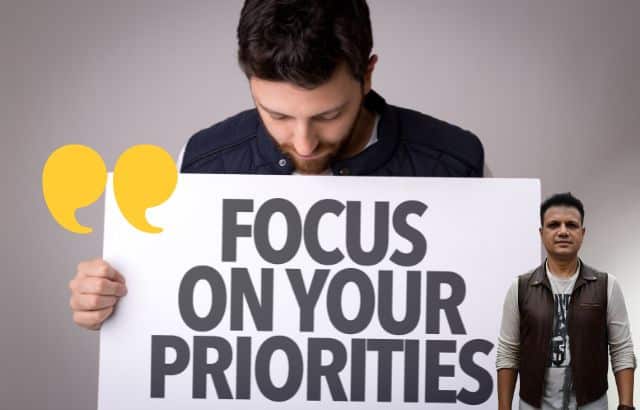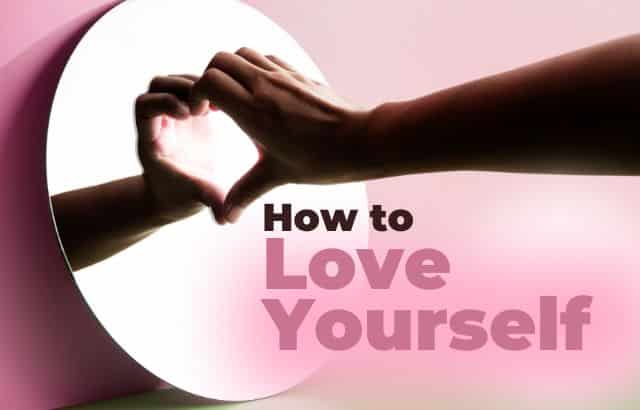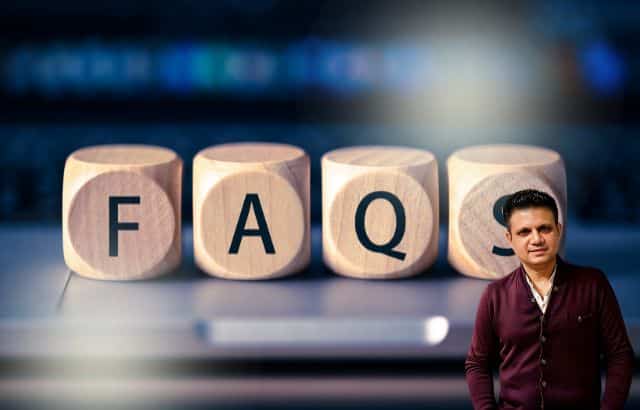In a world that constantly pushes us to be better, faster, and stronger, learning how to love yourself can feel challenging. Yet, self-love is one of the most powerful and essential foundations for a happy, fulfilled life. By cultivating a deeper relationship with yourself, you gain confidence, resilience, and inner peace. Here’s a guide on how to love yourself genuinely, so you can live with purpose, joy, and self-compassion.
Table of Contents
Building Lasting Self-Love- What Does It Mean to Love Yourself?

Loving yourself goes beyond pampering yourself with occasional treats or self-care routines. At its core, self-love means:
- Accepting who you are, flaws and all
- Treating yourself with kindness and respect
- Acknowledging your worth without needing validation from others
As Hirav Shah says, “Self-love is not a destination; it’s a journey of daily choices that affirm your worth and uniqueness.”
Why Is Building Lasting Self-Love- Important?
Self-love isn’t just a feel-good phrase—it’s essential for well-being. When you love yourself, you:
- Build a foundation for healthy relationships
- Cultivate resilience against life’s challenges
- Boost confidence and self-esteem
- Enhance your mental and emotional health
Let’s explore steps on how to love yourself in practical, achievable ways.
1. Practice Self-Compassion

Self-compassion is the ability to treat yourself with kindness, even when you make mistakes or face setbacks. Rather than being overly critical, offer yourself understanding and patience.
How to Practice Self-Compassion:
- Use gentle, encouraging language with yourself
- Remind yourself that mistakes are part of being human
- Avoid comparing yourself to others
“Be gentle with yourself. You’re doing the best you can, and that’s enough,” says Hirav Shah.
2. Building Lasting Self-Love -Set Healthy Boundaries

Loving yourself means protecting your energy and time. Setting boundaries with others helps you prioritize your needs and prevents burnout.
Steps for Setting Boundaries:
- Learn to say “no” without guilt
- Recognize and respect your limits
- Avoid overcommitting to things that drain you
Boundaries are a form of self-respect, showing that you value your well-being.
3. Building Lasting Self-Love –Focus on Your Strengths

Celebrate your unique talents and abilities. Self-love grows when you recognize what makes you special and focus on your strengths rather than dwelling on perceived flaws.
How to Focus on Strengths:
- List your accomplishments and qualities that make you proud
- Set small goals based on what you’re good at
- Celebrate even the smallest successes
“Self-love is rooted in knowing your strengths and building from them,” says Hirav Shah.
4. Building Lasting Self-Love – Engage in Positive Self-Talk

The way you speak to yourself matters. Replace self-doubt with affirmations that lift you up and empower you to become your best self.
Tips for Positive Self-Talk:
- Use affirmations like “I am worthy” or “I am enough”
- Catch and correct negative self-talk
- Remind yourself of your strengths and accomplishments
Changing your inner dialogue can shift your mindset, helping you see yourself in a kinder light.
5. Prioritize Self-Care

Self-care is an essential part of loving yourself. This means taking care of your physical, emotional, and mental health regularly.
Self-Care Tips:
- Exercise regularly to boost your mood
- Spend time doing things that make you happy
- Get enough sleep and nourish your body with healthy food
Loving yourself means caring for your body and mind to feel your best.
6. Let Go of Perfectionism

Perfectionism can be a major barrier to self-love. Embrace your imperfections and recognize that striving for perfection is unrealistic and exhausting.
Ways to Overcome Perfectionism:
- Set realistic goals and standards for yourself
- Accept that making mistakes is part of growth
- Focus on progress, not perfection
“Letting go of perfectionism is embracing your true self, with all its beauty and flaws,” says Hirav Shah.
7. Forgive Yourself

We all make mistakes. Self-love includes forgiving yourself for past actions and accepting that you did the best you could with what you knew then.
Steps to Self-Forgiveness:
- Acknowledge and learn from your mistakes
- Let go of guilt and negative self-judgment
- Give yourself permission to move forward
Forgiving yourself is an act of self-compassion that releases you from the weight of the past.
8. Pursue Your Passions

Doing what you love can strengthen your self-connection and increase your happiness. Make time for activities that bring you joy and fulfillment.
How to Pursue Passions:
- Set aside time each week to do something you enjoy
- Rediscover hobbies you’ve forgotten or neglected
- Explore new interests that excite you
Engaging in your passions is a form of self-care and a powerful way to nurture self-love.
9. Surround Yourself with Positivity

The people you spend time with can influence how you feel about yourself. Surround yourself with supportive, positive individuals who lift you up.
How to Create a Positive Environment:
- Choose friends who encourage and respect you
- Limit time with people who bring negativity
- Seek out communities that support your growth
Loving yourself includes surrounding yourself with people who reinforce your self-worth.
10. Embrace Your Authentic Self

Self-love means being true to who you are and letting go of the need for approval from others. Embrace your quirks, values, and individuality.
How to Embrace Authenticity:
- Reflect on your values and priorities
- Make choices aligned with your true self
- Resist pressure to conform or change for others
“To truly love yourself, you must accept who you are, unapologetically,” says Hirav Shah.
How to Love Yourself Every Day

Loving yourself is a journey that requires daily effort, compassion, and patience. By practicing self-compassion, setting boundaries, and embracing authenticity, you can cultivate a deep, lasting sense of self-worth. Remember, self-love isn’t a destination but a continuous practice of treating yourself with the kindness and respect you deserve.
As Hirav Shah beautifully states, “Self-love is not selfish; it’s essential. When you love yourself, you fill your life with purpose, peace, and joy.”
Building Lasting Self-Love –FAQs on How to Love Yourself

Q1: Why is self-love so important?
Self-love is foundational to well-being. It strengthens resilience, enhances confidence, and fosters healthier relationships. Loving yourself provides the inner strength to face life’s challenges with grace.
Q2: How can I start loving myself if I’ve never done it before?
Start small. Practice positive self-talk, forgive yourself for past mistakes, and engage in self-care. Self-love grows gradually with consistent effort and compassion.
Q3: Can self-love improve my relationships?
Yes, loving yourself helps you set boundaries, communicate needs, and engage in healthier relationships. When you value yourself, you attract relationships that mirror that respect.
Q4: How does self-love affect my mental health?
Self-love supports mental health by reducing stress, increasing self-acceptance, and promoting positive self-image. It fosters a compassionate inner voice, reducing feelings of anxiety and self-criticism.
Q5: What are some quick ways to practice self-love daily?
Some simple daily practices include affirmations, journaling, taking breaks, doing something enjoyable, and reflecting on your accomplishments. These small actions reinforce self-worth and positivity.
Conclusion:
Learning to love yourself is not a one-time achievement but a continuous journey of growth, understanding, and acceptance. It’s about recognizing your worth, embracing your flaws, and forgiving yourself for past mistakes. As you cultivate self-love, you become better equipped to face life’s challenges with resilience and compassion. Remember, the foundation of a fulfilling life is built on the love and respect you give to yourself first. Self-love isn’t selfish—it’s essential for personal happiness and success.
Read more about Hirav Shah’s insights on body language and its role in business deals in his exclusive interview with Divya Bhaskar.












